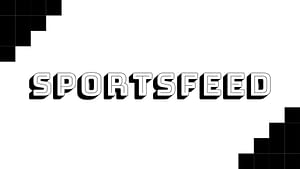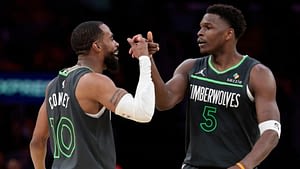How do you say goodbye to the GOAT?
When it comes to saying farewell to a legend like Diana Taurasi, words often fall short. After an illustrious 20-season career in the WNBA, Taurasi has decided to hang up her sneakers, leaving behind a legacy that includes three league championships and over 10,000 points. Her accolades are nothing short of extraordinary: the 2009 WNBA MVP, a six-time Olympic gold medalist, a five-time league scoring champion, and a three-time NCAA champion. But beyond the stats and the trophies, there’s so much more to say about the woman who has been the heart and soul of women’s basketball for two decades.
ESPN took the time to gather stories from Taurasi’s friends, teammates, family members, and former coaches over the past year. These anecdotes reveal the many facets of Taurasi’s personality, from her fierce competitiveness to her nurturing side. As Morgan Valley, Taurasi’s former UConn Huskies teammate and roommate, put it, “She’s one of a kind.” The stories range from the vault-ish to the heartwarming, painting a picture of a woman who is as complex as she is talented.
Geno Auriemma, the legendary UConn coach, summed it up best: “We got Diana” — and you don’t forget a legend like that. Let’s dive into the world of Diana Taurasi through the eyes of those who know her best.
First Impressions
Sue Bird, close friend, longtime USA Basketball teammate: “The minute you meet Diana, there is an impact. You feel the charisma. The thing that people get a little twisted is that she doesn’t have warmth, because maybe they watch her play and they see a competitor, they see somebody spit on the floor, or they see somebody punch something. [But] she’s really so very warm and so very generous.”
Bird recalls the first time she met Taurasi during her UConn recruiting trip. “Obviously, this was a big recruit, so the coaches were all nervous. She was at Coach Auriemma’s house, and a couple of us went to pick her up and take her back to campus for her to start her visit.”
Bird continues, “I have a ’93 Toyota Camry. She gets in and she’s like, ‘Oh, yo, I got a CD. Let me put this on.’ We’re being like, ‘Hey, whatever you want to do,’ because this is a recruit. Right away, she’s just super comfortable. It’s a lot of West Coast rap, which is not bad — that’s like a representation of who she is. It was a good little mix and we were all vibing to it. By the end of the car ride, she’s like, ‘You like it? Keep the CD.'”
Bird adds, “She has a way of making people feel connected to her, but also like the best version of themselves. … She just makes you feel like a thousand bucks.”
The Player
Sophie Cunningham, Phoenix Mercury teammate: “There’s a lot of times in games when, if I was going against her, I’d hate her. I would absolutely hate Dee. She’s just stubborn. She’s an a–hole. The way she plays is physical. She talks s— like no other.”
But Cunningham also notes, “But then [later], she’s like, ‘That was kind of fun, wasn’t it?'”
Tanisha Wright, former WNBA player: “I used to battle with Dee. She loves to joke and laugh with you on court, but I also understood all that was bulls—, just trying to get under your skin, so she can come kill you. So I used to always just keep a stoic face against her. You laugh and joke afterward, but during the game, like, ‘No, I’m not giving you any edge. No, I’m not your friend right now. I know you’re trying to rip me apart.'”
Wright appreciates Taurasi’s competitive spirit, saying, “You have to constantly be ready, you have to be on your toes. Because you know every night she’s going to bring it. If I didn’t bring it, I was going to be embarrassed. So I appreciate Dee, because she always brought the best out of me playing against her.”
The Teammate, Leader, and Mentor
Tina Charles, fellow UConn grad and former Olympic teammate: “We were playing for Galatasaray in Istanbul in the winter of 2012. She and I were working out together, and then she said that I had to make 10 free throws in a row. That was after my second year [in the WNBA], and I couldn’t do it.”
Charles recalls, “But she stayed in the gym with me for maybe two hours until I made them. She said to me, ‘A professional player should be able to make 10 straight free throws.'”
(Editor’s note: Later that year, in a season with the Connecticut Sun, Charles improved her free throw percentage from 68.7 in 2011 to 80.2 in 2012 and was the WNBA’s MVP.)
The Competitor
Rebekkah Brunson, former WNBA player: “I just remember her being a pain in the butt, she was so good. I played against her when she was at UConn and I was at Georgetown. You hate to play against her, but you know if she’s on your team, you’re going to do something special. She was great in college, but when she came to the pros, she could spread her wings even more and be an a–hole a little bit. What great competitor isn’t? You have to have an edge.”
Valley: “When you get her mad or annoyed or angry, she is cutthroat. When I coached Kelsey Plum, it was the same thing. It was like, ‘Whoa. When you get upset … everything’s off, like there are no safe spaces.’ Like, your mom’s ugly, your kid’s ugly. It wouldn’t matter. When she takes her gloves off, it was a whole other story.”
The Friend
Cunningham: “When people think of DT, they think of a fierce competitor, someone who’s super intense, really doesn’t give a f—. But when you really get to know DT, she’s the most genuine, loving, caring person you’ll ever meet. And I think that she puts up that front because she does care a lot. I just think that’s who she is.”
Valley: “I think what goes unnoticed is her kindness. The way she treats the people she loves and how she takes care of them and just would do anything for them is probably her most remarkable trait, not even really anything to do with a basketball player.”
Valley shares, “It’s a big thing, but it’s little. Her dad always wanted a Mercedes. She buys her dad a Mercedes. Fixes up her parents’ kitchen. Helps family out, helps friends out. She’s helped me in the past. Someone hits me up and they’re like, ‘Hey, can I get tickets?’ It was a national team exhibition game. She doesn’t know that person, I don’t really know that person. [But it’s] ‘Yep, Mo, whatever you need,’ gives the person two tickets. These random little acts. There’s a lot of them. …”
Valley continues, “She makes everyone feel like they’re the most important person to her when she meets them. She’d meet a little kid and that person would talk about it [long afterward]. I meet people to this day who are like, ‘Oh yeah. I met Diana when I was 9 at a UConn game.’ She can just make you feel like nothing else matters when you’re in her presence.”
The Wife and Mother
Bird: “Penny [Taylor] was such an amazing influence on her, and you could see Dee just kind of melted into Penny. None of that is surprising. And then you add in [son] Leo and [daughter] Isla, just what an amazing mom she is. In-season, moms have to do a lot to spend time with their kids, waking up at like 4 or 5 in the morning, even though you have practice.”
Bird adds, “Dee, deep down, has an incredible warmth to her. I think that’s really what Penny tapped into. That’s what her children have tapped into, and that’s who you see now. Dee, when you really get her in a reflective mode or place, I think she surprises people with her depth and with her insight. But when you know her, that’s who she is all the time. It’s just you get a little duped by the on-court persona.”
Brittney Griner, Phoenix Mercury teammate: “I don’t even know what year it was, but she was prepping me for when she’s [retired], dropping little knowledge dimes about the game of life. … We went from my rookie season where we probably didn’t talk about relationships, but now we’ll talk about being a parent, being a good spouse, being here, being present at home. And it’s something that I really appreciate because even though we’ve been here so long, I’m still in awe of her.”
Griner shares Taurasi’s best parenting advice: “None of this matters when you get home. Game, loss, win, hard practice, irritated at somebody. None of that matters, because when [your family] gets home, they don’t know nothing about this. They don’t care about this. All they care about is you being right there. Just soak it in, because it goes quick.”
Originally Written by: ESPN





















